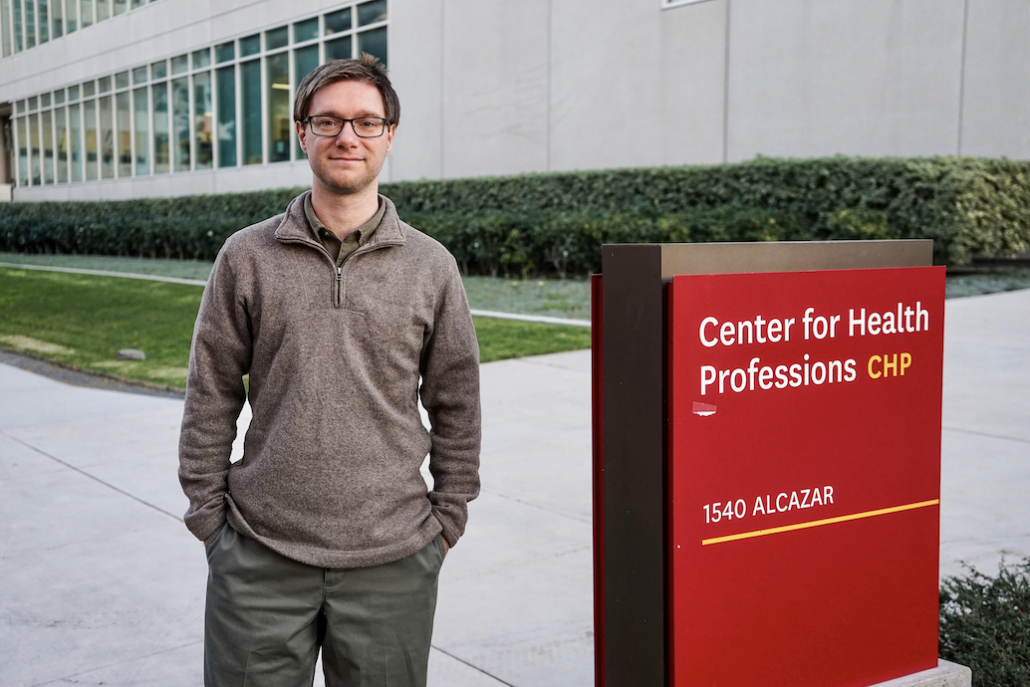USC researchers create speech therapy game

A team of USC researchers won second place at a January pitch event for a voice-assisted, choose-your-own-adventure speech therapy game they developed for children with cerebral palsy. The event was hosted by the Consortium for Technology Innovation in Pediatrics, a pediatric advancement program funded by the FDA and led by Children’s Hospital Los Angeles.
The game, called “Amplify,” was created by Christopher Laine, an assistant professor of research at the Division of Biokinesiology and Physical Therapy, and Brian Cohn, a doctoral student in the computer science program. Laine and Cohn said they created the game after realizing there was a lack of cost-effective and accessible speech therapy in America.
“Cerebral palsy is the most common movement disorder in children, and nearly half of them need some form of speech therapy,” Laine said. “The problem is that not all of them get the amounts and types of therapies they need under the current system.”
Cerebral palsy is a neurological disorder that affects movement, motor skills and muscle tone as a result of brain damage, usually from birth. Cohn and Laine said the disorder sometimes results in speech and communication challenges, especially for children.
“For some people with cerebral palsy, [who] have a lot of troubles even to form words, end up creating a language with their parents,” Cohn said. “So they can still communicate with their parents, but with other people it’s very hard.”
Cohn said “Amplify” lets kids create their own story by choosing different plot points and directions through speech.
“We created a system that can deliver speech therapy through an interactive, choose-your-own-adventure audio game,” Laine said.
CTIP Director Juan Espinoza said “Amplify” was a unique tool for children diagnosed with cerebral palsy.
“This voice-assisted technology … combined with [artificial intelligence] to help children get speech therapy at home or at school or anywhere is a huge benefit,” Espinoza said. “Many patients have difficulty [staying at a hospital] because of financial reasons … or [scheduling] conflict.”
Laine and Cohn said children can navigate different plots in the choose-your-own-adventure story through speech exercises. Then, the exercises will be recorded so speech therapists can analyze them through “amplify.” Cohn and Laine said they believe voice-assisted therapy, as a supplement to doctor-advised therapy, offers an interactive experience for patients to simultaneously improve their communication and have fun at the same time.
Cohn and Laine said they wanted to create a product to help families and individuals who lack access to hospital-led therapy due to economic or location barriers.
“It’s very hard for some of [the] patients to even make appointments because sometimes they don’t have the gas that [they] need to drive to the hospital,” Cohn said. “In most developed countries … [patients] often do receive speech therapy … what doesn’t exist is a solution for people who are more economically disadvantaged or disenfranchised.”
While current forms of speech therapy involve methods that help patients control and monitor breath, pitch and volume more suitable for adults, Laine said therapy should be adaptable to children’s needs.
“We wanted to find a way that motivates them to practice the exercises they need to do … because any [form of] physical therapy is about repetition and practice,” Laine said. “[Motivating a] child to practice something that is apparently … boring is why we wanted to make this a game, some kind of fun immersive experience for them.”
Cohn said “Amplify” will start with hospital-based therapy through trials with CHLA.
In the future, the team wants to make the game more consumer-directed, which will allow a patient without health insurance to still be able to purchase the game on their phone or laptop.
“What I imagine this will turn into is a phone host of speech therapy exercise that’s all completely usable offline without internet connection,” Cohn said.
Cohn and Laine also hope to create a Netflix-style library of speech therapy exercises for “Amplify.” For instance, if a patient has problems articulating the letter “R,” he or she can access specific exercises to learn that letter, they said.

